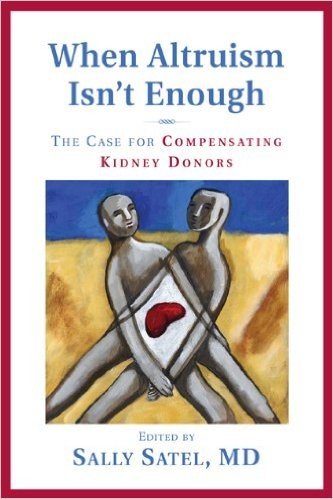
When Altruism Isn't Enough: The Case for Compensating Kidney Donors
- 作者
- Psychiatrist and Lecturer Sally Satel
- 出版社
- AEI Press 版次:1
- 语言
- 英语
- 页数
- 250页
- 装帧
- 平装
- ISBN
- 084474266X
- 重量
- 386 g
- 尺寸
- 15.4 x 1.9 x 23.1 cm
- 电子书格式
- epub,pdf,txt,azw3,mobi,fb2,djvu
- 下载次数
- 6657
- 更新日期
- 2023-08-24
America faces a desperate organ shortage. Today, more than 78,000 people are waiting for a kidney transplant; only one in four will receive one this year, while twelve die each day waiting for help. Not surprisingly, many patients are driven to desperate measures to circumvent the eight-year waiting list renting billboards, advertising in newsletters, or even purchasing an organ on the global black market. Altruism is an admirable but clearly insufficient motivation for would-be donors. What can be done to solve the kidney crisis? Reward organ donors for their remarkable gifts. Noncash benefits to people who donate to a desperate stranger will motivate others to do the same, increase the national supply of kidneys, and reduce needless death and suffering. When Altruism Isn't Enough: The Case for Compensating Kidney Donors explores the key ethical, theoretical, and practical concerns of a government-regulated donor compensation program. It is the first book to describe how such a system could be designed to be ethically permissible, economically justifiable, and pragmatically achievable. Altruism is a beautiful virtue, but relying on it as the sole impetus for organ donation ensures that thousands of people will continue to die each year while waiting for kidney transplants"
When Altruism Isn't Enough: The Case for Compensating Kidney Donors EPUB, PDF, TXT, AZW3, MOBI, FB2, DjVu, Kindle电子书免费下载。